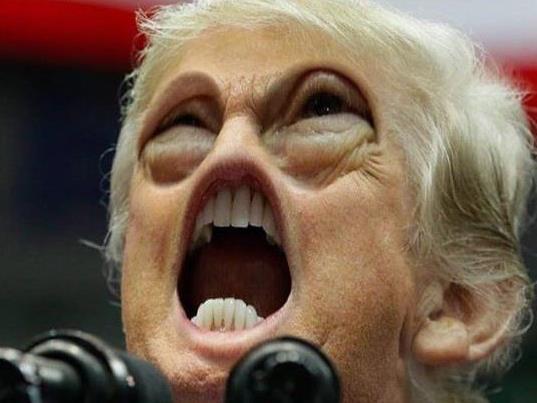Image by artist Phillip Kremer
When it became clear Donald Trump would win the United States presidency, many of his opponents on social media expressed not only a sense of outrage and sadness but one of helplessness.
As someone who spends their time working in the arts — as opposed to politics or a role inclined towards activism — for me there was another niggling feeling, something akin to guilt. Realising, as so many others did in that moment, that I had been somewhat mistaken in my belief that sanity would prevail in the United States election, I started to genuinely question the career path I’ve chosen. If this is the current state of our world, then what have I been doing, I wondered, with all my time, resources and energy?
I am not alone. As those of us who work in the arts confront our horror that a man who stands for everything he does — misogyny, racism, xenophobia — could be elected president of the so-called free world, many questioned whether they could have helped prevent this outcome.
Sarah Larson, cultural correspondent for The New Yorker, expressed this feeling when she wrote her thoughts in a piece titled “Election Day in the East Village: Singing Helps, published in the New Yorker the day after the election. ‘I’ve thought a lot about the role of the arts, and of arts-and-culture journalism, this year. During this election, writing about theatre, pop music, television, and so on, has often felt futile, unserious, even as politics creep in here and there. [On election day]… looking at the thin margins in swing states, I felt guilt and self-loathing for not having done more,’ she wrote.
What Larson was wrestling with is an ongoing struggle for many people in the arts. We frequently wonder — more so at times like this — what our work is worth to the world, or if indeed, it matters at all. As artists, we are often our own worst enemies, minimising the strength of what we have to offer and dismissing the power we have at our fingertips.
It’s a familiar idea, particularly in Australia, that arts and culture be set aside under the ‘recreation’ banner, sidelined to an arena reserved for fun weekend activities and light hearted relief from the serious business of real work. But this attitude undermines the fact that the arts are central to our humanity, and therefore very serious business indeed.
Art has the ability to mobilise us, to inspire us to act. This is, of course, not a new phenomenon — it’s a well documented part of history. Throughout the ages, art has been integral to revolutions, political and otherwise, giving a voice to the voiceless, and uniting those who feel dissatisfied, disillusioned or downright outraged about the state of their world.
In an article in the Huffington Post entitled Dear Artists, We Need You Now More Than Ever, Katherine Brooks wrote, ‘Art has long been used to agitate the privileged, to amplify the voices of the less powerful…. people like Tania Bruguera in Cuba, Yael Bartana in Israel, Kara Walker in the U.S., Ai Weiwei in China and Pedro Reyes in Mexico defiantly use art to prod the status quo and question the way the world works.’
Art can also provide us with much needed comfort. Who hasn’t, at some point, found solace in music, poetry, a painting or a beautiful piece of writing that articulates what we cannot or reflects our pain in a way that says ‘me too’?
In this way art creates communities of people who are seeking strength and connection in difficult times. For those of us in Australia deeply affected by what Trump’s presidential win symbolises, we can take our lead from the way artistic communities in the US are dealing with the fallout, and this in turn will help us with our own struggles — as we know only too well, things are far from perfect at home for us too.
Larson describes her experience of spending election night at The Public Theatre, an arts organisation in New York, among artists and performers. The highlight, she notes, is when a young performer takes the stage to lead the crowd in singing the famous American folk song written by Woody Guthrie ‘This Land is Your Land’. Larson writes, ‘Crying, I sang with my whole heart; everybody else did too…Singing this, I remembered why we make art, why we need art. It’s to connect and inspire us and make us feel human when life feels too awful to bear.’
In Australia, it should be clear to us now that the time has passed to sit back and watch what goes on in the global political arena with mild concern or annoyance. As artists, we have incredible power — art commands attention, it engages. It holds a mirror up and reflects our cultural and political landscape back to us with all of its blind spots, division and darkness. Art can bring us together, heal us and light a way forward. At this time, as in all times, this is not to be forgotten.





